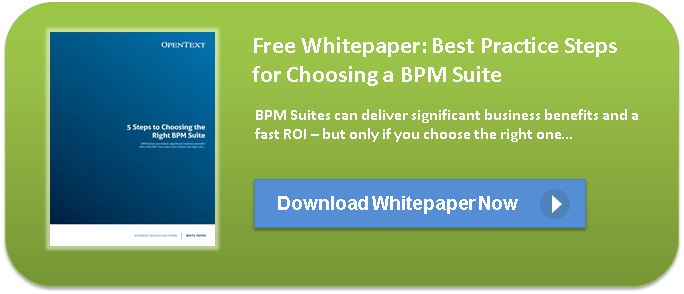Spotlight on KPIs – How to realise ROI from BPM initiatives

Is Your AI and Automation Strategy Right for You?
Business Process Management (BPM) has enabled companies across the globe to enact changes in their processes that have continued to yield impressive results. Knowledge is power, and the holistic approach to BPM demands that you need to be aware of the most valuable Key Performance Indicators (KPIs).
Processes, Metrics, and Tools to Push Accountability in BPM
Identifying the core KPIs of your business is a golden step in driving accountability. Different businesses in varied industries will spotlight different KPIs, but here are some starting points that many businesses use universally:
- Average time overdue
- Average number of processes overdue
- Average process age
- Average time to complete a process or task
Deploying all of these different tools is an excellent method of developing multiple comparable data sets to zero in on important KPIs.
The Important KPIs For ROI
What everyone wants is a perfect line of clear gauges. What everyone actually gets is more like a massive, multi-dimensional web. To dispel confusion around the multiplicity of data, develop and store multiple data
sets, all from different sources, and compare them across all sets to pinpoint the connections of each metric/process relationship. Use this information to develop less ambiguous data, create more goal-directed processes and identify important KPIs.
Proxies for KPI Identification?
While every business should have KPIs, not every business can have them. If you can't come up with actionable KPIs, come up with proxies that are easily understandable, relative, easily measured, cheap and are linked to your objectives.
Connect Metrics And Indicators
Connecting metrics and indicators is the culmination of all your hard work and planning. But, it's a tough step to take itself. At this stage, you want to ensure that you're linking metrics with indicators that are relevant. Ask questions like, "Is this indicator a result of that metric? Are other metrics involved in this indicator's workings? Are the metrics influencing other indicators, and which ones could they be?"
The C Suite will care most about the KPIs that are being influenced by metrics, as the values that drive actionable results and thus the accomplishment of goals. Their eyes and ears will be searching for the specific, special relationship between indicators and results. Highlight the KPIs that are most relative to your business and its processes, and explore the methods used to identify these indicators, further legitimizing your findings.
In contrast, stakeholders will be less interested in relativity and more interested in the metrics themselves and how they pass over directly into your actionable results. This information will help them understand the importance of their individual processes and how to achieve the business' goals.


